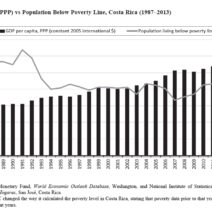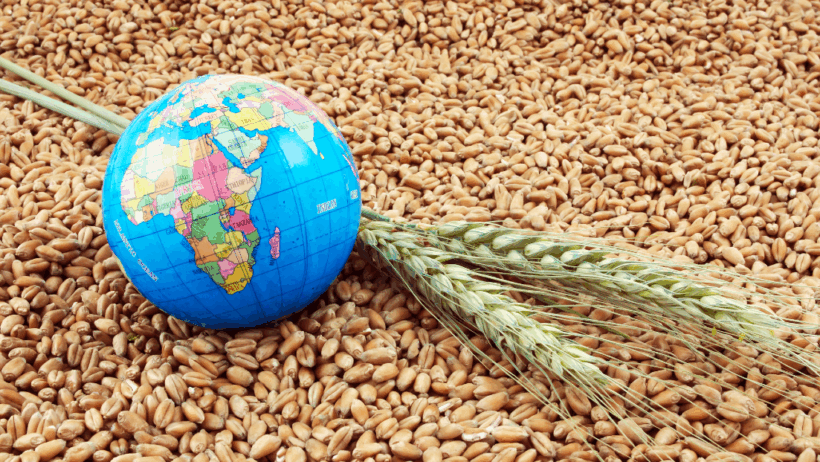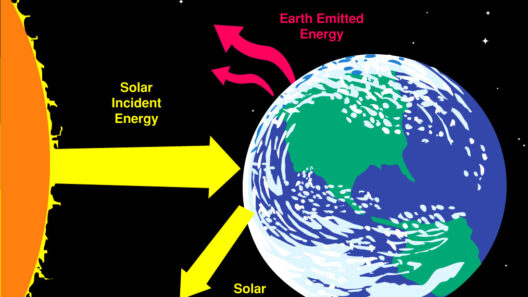As the global population surges towards an anticipated 9.7 billion by 2050, the urgency of food security emerges as a paramount concern. However, this vital quest for sustenance is increasingly jeopardized by the calamitous effects of global warming. Food security, defined as the accessible availability and adequate utilization of food, is centrally entwined with agricultural practices, climate stability, and socio-economic conditions. Thus, understanding how global warming impacts our food systems is crucial for cultivating resilience and ensuring future nourishment.
Global warming, predominantly attributed to anthropogenic greenhouse gas emissions, manifests through rising temperatures, altered precipitation patterns, and more frequent extreme weather events. Each of these phenomena introduces a cascade of complications to agricultural productivity. Notably, temperature increases can disrupt the delicate balance required for optimum crop growth. For many staple crops, such as wheat and rice, even a modest rise in temperature can significantly curtail yields. Furthermore, heat stress can diminish crop quality, leading to unstable supply chains and increased food prices worldwide.
While higher carbon dioxide concentrations in the atmosphere may initially seem beneficial by enhancing photosynthesis, this advantage is frequently offset by the detrimental effects of climate change. For example, crops such as soybeans and maize may exhibit initial growth spurts; however, when subjected to prolonged heat and variability in precipitation, such crops become more susceptible to pests and diseases. This cyclical adversarial relationship between climate change and agricultural output poses a dire threat to global food security.
The implications of changing precipitation patterns cannot be overstated. Agriculture is inherently reliant on predictable rainfall, which underscores its vulnerability to climate perturbations. Regions that have historically benefitted from consistent precipitation may suddenly face droughts, leading to catastrophic water shortages. Conversely, other areas may experience increased flooding, rendering fertile lands barren. The alteration of these fundamental climatic phenomena cultivates uncertainty and instability in crop production.
Climate change transcends mere physical environmental consequences—it exacerbates socio-economic inequalities as well. Vulnerable populations, particularly in developing regions, are often ill-equipped to adapt to rapid changes. Smallholder farmers, who constitute over half of the world’s agricultural workforce, may lack access to advanced farming technologies or insurance, leaving them exposed to the whims of climate unpredictability. The exacerbation of food insecurity can lead to dire consequences, including increased malnutrition, social unrest, and forced migration. This feedback loop continues to diminish the resilience of food systems globally, threatening the very fabric of societal stability.
The cascading effects of climate change are further manifested through its impact on fisheries and aquaculture. Rising sea temperatures and ocean acidification are altering marine ecosystems, disrupting fish populations and their breeding grounds. The cascading effect endangers communities reliant on fish as their primary protein source, complicating food security even further. Such disruptions not only affect economic growth but hinder nutritional access for vulnerable populations, showcasing the multifaceted nature of the food security crisis precipitated by climate change.
In examining agricultural resilience in light of climate change, a multifaceted approach emerges as essential. Innovative agricultural practices, including agroecology and regenerative farming techniques, can play a pivotal role in mitigating the impacts of climate change. By fostering biodiversity—through crop rotation, intercropping, and the reduction of chemical inputs—farmers can bolster ecosystem resilience while curtailing greenhouse gas emissions. Crop diversification presents a strategic buffer against climate variability, securing food supply chains and reducing dependency on single crops.
Investment in research and development holds the potential to transform traditional agriculture into a climate-smart system. Advancements in biotechnology can facilitate the creation of crops that are more resistant to disease and climate change effects. Drought-resistant varieties are emerging, alongside innovations in irrigation that underscore efficient water use. Furthermore, implementing smart agricultural technology, such as precision farming, can optimize resource allocation and enhance yield predictability—all paramount in a world increasingly besieged by climate challenges.
However, technology alone cannot resolve the overarching crisis of food security. A paradigm shift is necessary; societal commitment is essential for implementing sustainable agricultural policies. Government intervention must address the institutional barriers that prevent farmers from accessing resources, education, and markets. Empowering women, youth, and marginalized communities in agricultural practices not only fosters equity but enhances community resilience against climate-induced shocks.
Food security in the realm of global warming indeed prompts a reevaluation of our approach to agriculture, sustainability, and socio-economic equality. It challenges us to consider not merely the quantity of food produced but the quality of life and health for all populations. As we grapple with these intertwined challenges, collective action rooted in scientific innovation, social justice, and sustainable practices becomes indispensable.
Understanding the pressing, complex nature of global food security against a backdrop of climate change encourages curiosity and motivation for transition. Each action we take—whether on an individual, communal, or governmental level—contributes to a significant paradigm shift. As we recalibrate our perception towards sustainability and food security, we embark on a transformative journey that promises not only to safeguard our food supply but to build a resilient future for generations to come.








